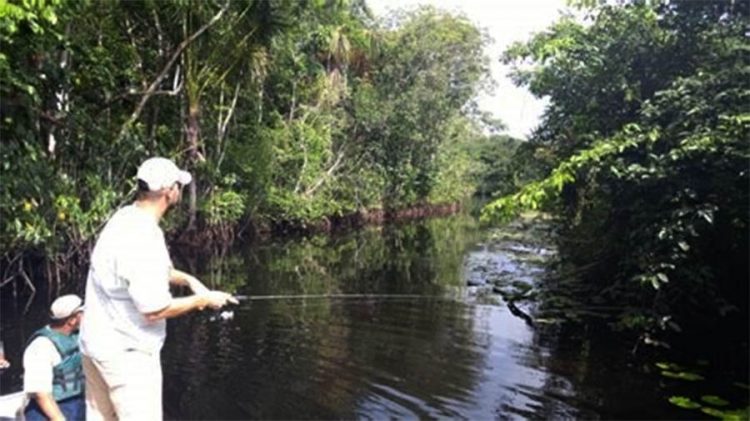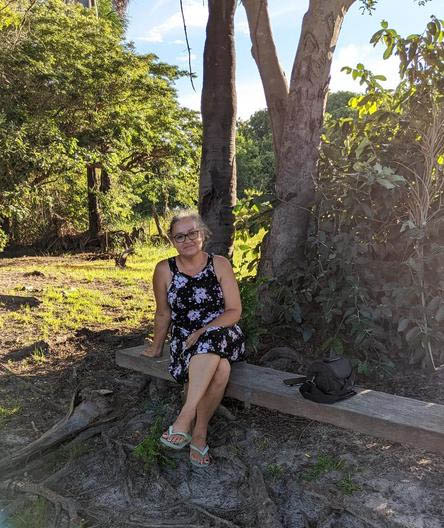Seemingly keen to raise the country’s tourism profile to match the surfeit of external interest in Guyana triggered by the emergence of a ‘world class’ oil and gas sector, the Government of Guyana is pressing the Guyana Tourism Authority (GTA) into service in pursuit of a visitor experience that would match, if not surpass, those other outstanding ones in the hemisphere.
Every expansive development initiative that occurs in Guyana these days is driven by the promise of generous returns from the country’s oil and gas sector, and tourism, it appears, is no exception. Earlier this week the GTA announced that that it is aiming to launch fifteen (15) new “tourism experiences” this year in pursuit of what it says is an effort to diversify tourism products available locally. Not ever in the history of our tourism ambitions, previously, has such an expansive outlay of tourism infrastructure been attempted previously. A recent release from the GTA says that some of the work being done, includes the refining of the Mahaica River Tours, an experience that exposes visitors to one of the country’s largest mangrove forests and also its biodiversity. This is promised as one of a swathe of initiatives through which the GTA promises to burnish the image of the tourism sector and to provide visitors with more than just a single reason to come here.

Nor does the undertaking given by the GTA to burnish the image of the sector stop there. Its most recent disclosure promises a “product development team” which, among other things, has been assigned “site assessments” designed to “ensure that the experiences included in the official itineraries offered by operators are delivered ‘to the hilt.’ One of the releases from the GTA allude to an “outreach” to Quarrie in the central Rupununi which it said would focus on strengthening the experiences offered in the region and provide “additional support in areas of tour guiding, itinerary refinement, and improving the quality of service provided,” all of this, presumably, with a view to strengthening the fabric of the country’s overall tourism industry. Beyond this, the GTA says that it is had entered into a partnership with the private sector-run Touring Guyana in pursuit of a product assessment and refinement trip to Santa Rosa in the Barima-Waini region, where country’s largest indigenous settlement is reportedly located. At Santa Rosa, the visiting team also reportedly “tested the cycling and canoeing experiences at Santa Rosa, and with the support of the Santa Rosa Tourism Committee, visited the shell mounds at Waramuri and conducted an initial bird assessment at Adel’s Resort,” the authority noted.
While the GTA seeks to focus on building the credentials of some of the country’s interior locations as mainstream tourist havens, what has been, over several years, is a failure to link hinterland tourism to a comparable effort to provide a convivial urban visitor friendly environment that has long been overlooked by government. Accordingly, even as the GTA continues to seek to raise the profile of hinterland tourism, the ‘’refashioning’ of the capital through investment in infrastructure that includes roads and drainage is becoming visible, never mind the fact that the makeover undertaking continues to throw up its own negatives. Here, it should be said that the disruptive consequences of the official makeover are complemented by private sector pursuits that have left key parts of the capital in varying degrees of near chaos. Much of this is manifested in the forms of paved public walkways put out of compliance by builders’ waste, clogged canals that have become permanent repositories for builders waste’ and recently rehabilitated roadways on the way to renewed ruin on account of relentless pounding by heavy duty vehicles pursuing myriad construction-related assignments in the capital and beyond.
Even as the GTA was collaborating with the visitor promotion entity, Visit Rupununi to execute what the state agency said was “a product development outreach to Toka Village, North Rupununi, Region Nine,” visitors to the country and urban dwellers alike were pondering the incongruity between the flooding which the recent downpours have been visiting on the capital and some outlying communities and the aggressive efforts of the GTA to promote the country’s interior tourism product. What, truth be told, are still pinprick efforts to erect a robust interior tourism profile, has seen the recent handing over of a G$3.6 million to a Rupununi Deputy Toshao, Delano Davis, “to aid the village’s enhancement of its tourism package,” points to what is still a decidedly modest investment in the development of interior communities to a level that would transform them into tourism-ready locations. This, observers will argue, forms part of what remains a pinprick effort to build the stature of hinterland tourism to the level which it has earned on account of what it has to offer.
Other official probes of possible interior tourism enclaves include what the state-run Department of Public Info0rmation (DPI) has said is the testing of a “kayaking and paddle- boarding experience at Manari Creek, Central Rupununi, Region Nine.” The tourism body says that once the readiness of this “experience” is finalized, guides will lead this experience which promises a number of highlights, including kayaking and paddle-boarding along a pristine, scenic route” which will commence at the Manari Bridge and conclude at Manari Ranch.






